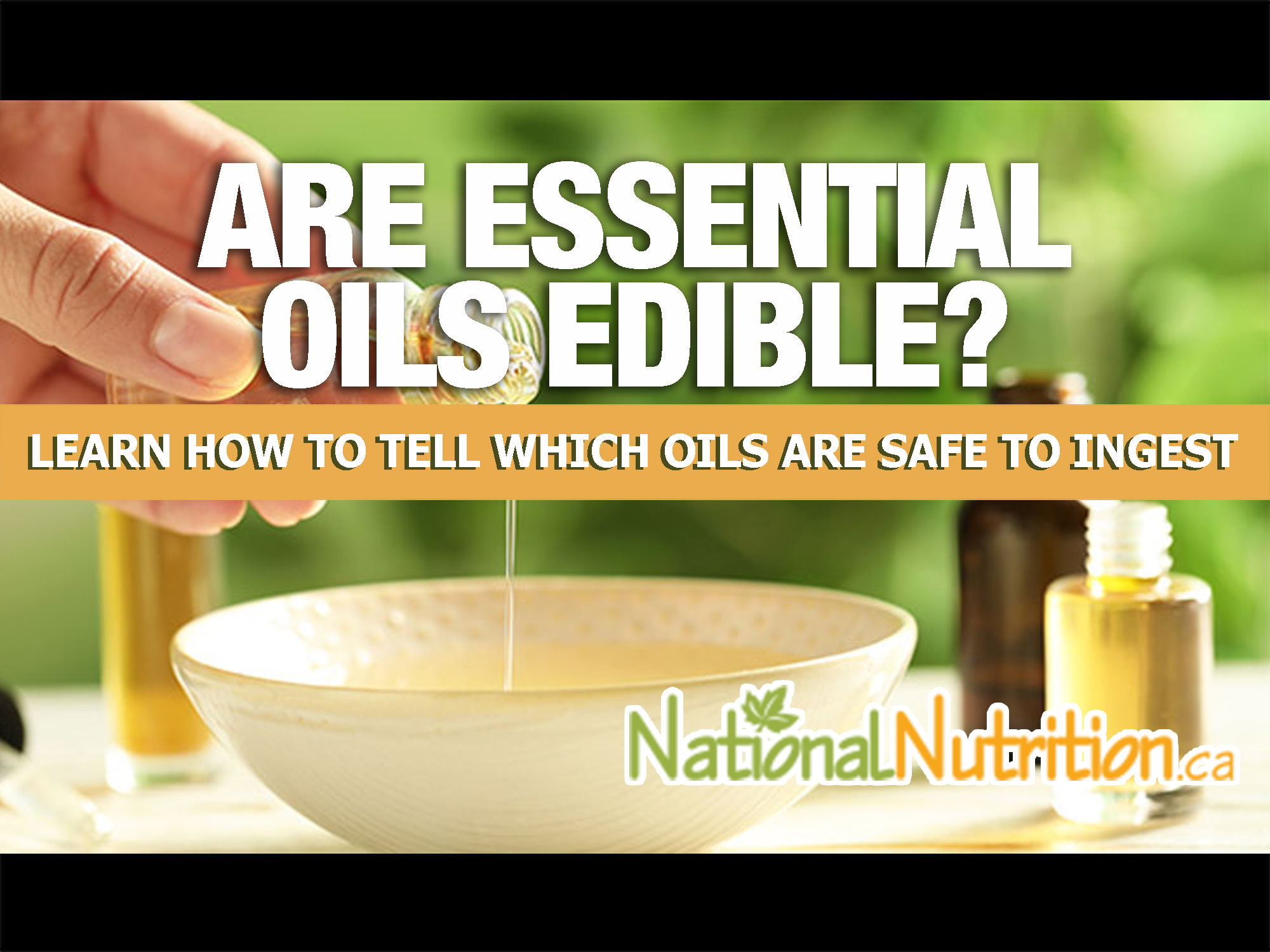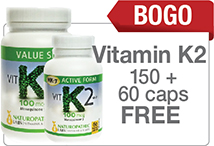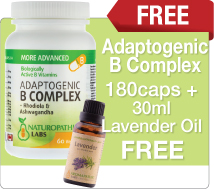
Are Essential Oils Edible?
Updated Jul. 12th, 2023 | Read Time: 6 Minutes | What You Will Learn:
- What Are Aromatherapy Oils & How Are They Made?
- What Are Edible Essential Oils & How Are They Used?
- What Essential Oils Can Be Used Internally?
- Selecting High-Quality Essential Oils
- Final Thoughts
The global essential oils market was valued at USD 21.79 billion in 2022 and is expected to increase by 7.9% annually between 2023 and 2030. Much of this growth is attributable to rising demand from industries such as aromatherapy, personal care, cosmetics, and even the food & beverage industry. Over the last decade, consumers have also increasingly embraced essential oils and aromatherapy, using them in all sorts of applications, from DIY skin and body care to homemade household cleaning solutions, as well as in many therapeutic applications via inhalation or massage therapy. So, what exactly are essential oils, are they edible, and why are they so popular?
What Are Aromatherapy Oils & How Are They Made?
Essential oils are plant extracts obtained by distilling different parts of plants, including flowers, leaves, bark, roots, resin, and peels. Distillation can take the form of hydro distillation, steam distillation, or microwave-assisted dry distillation, all of which separate the oil and water-based compounds, resulting in a highly concentrated oil containing all the precious elements naturally present in a plant. Most notably, essential oils contain a range of active organic volatile chemical compounds which are responsible for their aroma and therapeutic characteristics. Depending on the plant, its essential oil can possess powerful antifungal, antibacterial, anti-inflammatory, antiviral, antidepressant, stimulating, detoxifying, digestive, or calming properties, among many other attributes.
Far from being a fad, essential oils have been used for thousands of years in various cultures around the world in all sorts of medicinal and culinary applications. And what’s especially exciting about these therapeutic oils is that unlike most drugs used in conventional medicine, they, by and large, do not cause serious side effects. However, it is important to realize that not all essential oils are created equal. Indeed, essential oils made via chemical processes are not considered authentic essential oils. Rather, they are considered "cosmetic oils" or "fragrance oils." Since synthetically-produced oils do not contain the vital compounds found in fresh plants, they are not meant for medicinal applications or internal use. But not all essential oils are edible.
What Are Edible Essential Oils & How Are They Used?
First, it's important to clarify that many essential oils are inappropriate for internal use. Also, before using an essential oil, you should always read the label carefully – if it clearly states, "NOT FOR INTERNAL USE," it should not be consumed. This may be because the plant itself is not appropriate for consumption, or it is fragrance oil, so it is synthetic. That being said, many high-quality food-grade essential oils can safely and effectively be used internally as a powerful form of medicine. Keep in mind, however, that essential oils should be used sparingly. Usually, one to three drops are plenty mixed with water. Certain edible essential oils such as clove or oregano must always be diluted with water and should only be taken short-term – up to a maximum of two weeks.
Of course, food-grade edible essential oils are also an excellent and delicious way to flavour your water, tea, and all sorts of recipes. They can be added to your beverage of choice, including shakes and smoothies, or can be put into a veggie cap for those who do not like intense flavours. Alternately, they can simply be dribbled into the mouth and briefly held under the tongue for fast absorption. You can also bake with edible essential oils as succulent and robust natural flavourings.
What Essential Oils Can Be Used Internally?
Below are some of the most popular edible essential oils that can safely be used to enhance your dishes while supporting your overall health and wellness. Remember, only culinary essential oils are safe for consumption and the bottle must state that they are safe for consumption:
- Anise (Pimpinella anisum)
- Bergamot (Citrus aurantium var. or Citrus bergamia)
- Black Pepper (Piper nigrum)
- Cardamom (Elettaria cardamomum)
- Clove (Syzygium aromaticum)
- Eucalyptus (Eucalyptus globulus)
- Fennel (Foeniculum vulgare)
- Frankincense (Boswellia sacra)
- Ginger (Zingiber officinale)
- Grapefruit (Citrus paradisi)
- Lavender (Lavandula officinalis)
- Lemon (Citrus Limonum)
- Lemongrass (Cymbopogon citratus)
- Lime (Citrus aurantiifolia)
- Mandarin (Citrus reticulata)
- Nutmeg (Myristica fragrans Houtt.)
- Orange (Citrus sinensis)
- Oregano (Origanum vulgare)
- Peppermint (Mentha piperita)
- Rosemary (Rosmarinus officinalis)
- Spearmint (Mentha spicata)
- Thyme (Thymus vulgaris)
The above is by no means an exhaustive list of edible essential oils. However, certain essential oils are never, ever safe for consumption, no matter how high-quality they may be. These include Arborvitae, Cedarwood, Cypress, Douglas Fir, Spikenard, White Fir, and Wintergreen. If you aren't well versed on the subject, it's probably best to consult a certified aromatherapist to guide you on your essential oil journey.
Selecting High-Quality Essential Oils
Learning how to use edible essential oils is a great way to help harmonize your physical and mental health, as well as strengthen your body’s natural healing potential. Indeed, internal use is one of the most effective ways to use essential oils and offers distinct benefits. To do so effectively, selecting only high-quality, therapeutic-grade, or food-grade oils is critical.
Most quality brands present their essential oils in tightly sealed, dark or amber-coloured glass bottles that can block most UV rays. You'll also need to read the label carefully. Look for products that clearly state the common and the Latin name of the plant (or plants) used to make the oil. There should be a mention of how the oil is extracted (distillation or expression) and how it was grown (organic, wild-crafted, traditional). Ideally, always select a certified organic or wild-crafted essential oil. The label should also mention that the product in question is 100% pure essential oil, as opposed to "fragrance oil," "perfume oil," or "essence oil ." Last but certainly not least, the product you select should have only one ingredient and absolutely no excipients. This is your assurance that the oil in question is indeed 100% pure essential oil.
Those looking for a convenient way to integrate essential oils into their daily routine may prefer the capsule form since it takes the guesswork out of dosing. Pranarom, a Montreal-based company, has cornered the market on these and offers a range of certified organic, wild-crafted essential oil capsules. The oils are 100% pure, 100% natural and made from whole plants. The oils are obtained by low-pressure steam distillation without the use of a chemical descaler. Moreover, Pranarom essential oils, both the drops and capsules, are tested via chromatography, spectrometry and aromatogram to guarantee purity, potency, and maximum therapeutic effect. You can also open the capsules to drain them into a beverage of your choice, if you generally prefer the capsule format over liquid.
Final Thoughts
Whether you are using them topically, aromatically, or internally, the benefits of essential oils are vast, from aromatherapy to household cleaning products, personal beauty, and skincare and medicinal applications. It is crucial, however, to remember that essential oils are incredibly potent and pure, so always start with just a drop or two. If adding essential oils to food or drink, consider 1 drop as being equal to 1 teaspoon of a spice or herb. A little goes a long way!
Essential oils should be kept away from young children and pets, and pregnant or nursing women should consult their healthcare provider before using essential oil internally or topically.






















I am so glad that this article was written! I have often wondered if essential oils are edible or not and once saw a person I know take her essential oils and have a few drops in her mouth and I was worried because I was always under the impression that you could not ingest them! It is always a good idea to find them in oral capsules for consumption instead or drops meant for that to be safe as mentioned above!
Hello O,
Thank you for sharing your thoughts on the article. It's great to hear that it provided clarity on the topic of ingesting essential oils. You are correct, you should not ingest essential oils directly, as they can be potent and potentially harmful. Using oral capsules or drops specifically formulated for ingestion is indeed the best option. To learn more about essential oils, check out our series here: https://www.youtube.com/watch?v=EONKjnTkE5k&list=PLFydSZTC8qlbfjY2KHRR9lCDLZNLDd5k5&pp=iAQB
Excellent article! It's crucial to promote responsible use of essential oils, not just for our well-being but also for the environment. Sustainable practices in the production and sourcing of these oils can help protect fragile ecosystems. Let's remember to respect nature while enjoying the benefits of essential oils! <3 Thank you for providing many sustainably sourced options!!
Hello Rachel,
Thank you for your kind words and for highlighting the importance of responsible use and sustainable practices when it comes to essential oils. We share your belief that promoting the well-being of both individuals and the environment is crucial. By offering sustainably sourced product options, we aim to provide our customers with products that align with these values. You can find quality and sustainably sourced oils from these reputable brands, https://www.nationalnutrition.ca/aromatherapy-essential-oils/single-essential-oils.html
Have a healthy day